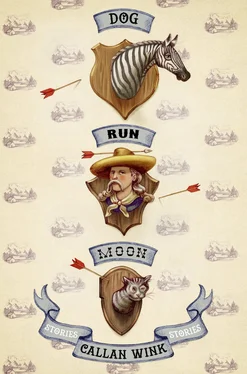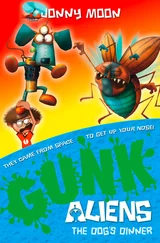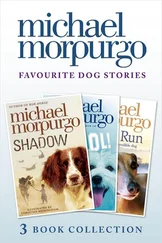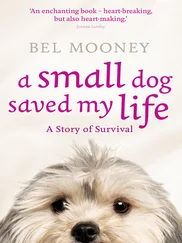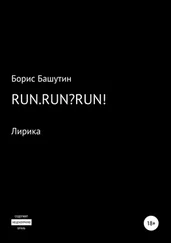In Crow country, there are horses everywhere. Mostly wild patchwork paints with mismatched eyes that give them a crazed feral look. There are horses and the land is always on fire. Not all of it, of course, but some of it always, at least every time I have ever been there. In the early spring, after the snow melt but before green-up, men walk the fields with flamethrowing devices, the fuel canisters strapped to their backs, the flames shooting from long metal tubes. They walk the tangled field edges, the creek bottoms, the orange and blue flames stabbing out like tongues bitten ragged, tasting the air. The alders and hunched Russian olives and tangled brown grasses smoldering black and bursting into flame, as pheasants cluck and run senselessly across the bare fields. An apocalyptic scene set against a backdrop of arthritic, leafless cottonwoods and the flat hills that hide the Bighorn River.
We were lost in eastern Montana, Crow country, looking for the Little Bighorn Battlefield, site of Custer’s glorious defeat — my father behind the wheel, piloting our silver compact rental car over red clay roads greasy from the runoff of melted snow. Smoke rose from the charred fields in gauzy patches, filling the car with the faintly narcotic smell of smoldering weeds. Our luggage was in the backseat. My large red pack — the kind supposedly favored by hikers on the Appalachian Trail (a gift from my father) — and my father’s wheeled leather suitcases. My father’s fly rods in their cylindrical leather cases were there, as well as two of my father’s side-by-side twenty-gauge shotguns in their fleece-lined leather cases. One of these very shotguns, incidentally, I had stolen from the unlocked gun case in his den and tried to pawn when I was fifteen years old. This was sixteen years ago during what my father eventually came to call my “rough patch,” a hazy span of time nearly a year in duration during which I stole rampantly and masturbated frantically, sometimes five to six times a day. My father was aware of the theft, obviously, of the masturbation I’m not sure, although I wouldn’t be surprised, as I stole a copy of Leopold von Sacher-Masoch’s Venus in Furs, leaving a large, noticeable hole in the volumes on the shelves in his den. I kept the leather-bound volume under clothes in my closet, and abused myself to a pulp daily in that very closet, the wooden folding doors shut behind me, the chain for the overhead light dangling over my head where I knelt with my jeans around my ankles, my favorite passages dog-eared for easy reference.
I stole mostly from my father’s house, but occasionally from the houses of my friends — rarely ever from stores or people I didn’t know. I stole a Montblanc pen and a fake Rolex watch from the father of a friend of mine who was a federal judge. I stole a set of Wüsthof knives from my father’s kitchen, and spent half a day throwing them at trees in the woods behind the house. I stole a necklace from my mother. It had once been my grandmother’s, quite possibly it had been her mother’s. It was old, medieval looking, the gold tarnished from the multigenerational sweat of the matriarchy. I stole every ashtray from my father’s house, and spent half an afternoon throwing them at trees in the woods behind the house. I stole five bamboo fly rods — made by a certain R. L. Winston in Twin Bridges, Montana — from my father’s den and spent half an afternoon splintering them magnificently in a vicious sword fight battle with a friend of mine in the woods behind the house. During this time I masturbated, mostly in my closet, but in many other places as well: in the woods behind the house, in all of the various outbuildings on my father’s property (the garden shed, the guesthouse, the garage, the other garage), in every room of my father’s house including the attic (excluding my father’s den), the bathroom at my school and in the bathroom at the Lutheran church we attended once a year on Easter Sunday.
The day I stole the shotgun was much like any other day that year. I attended school five blocks from my house, a distance I walked. I got home from school and masturbated once or twice, ate something that I could microwave easily, and then looked around for something to steal. I sat in my father’s den, swiveling in his chair behind the large empty oak desk. I took one of a matched pair of side-by-side twenty-gauge shotguns — made by a certain James Purdey & Sons of London, England — and a handful of shells, and I went to the woods behind the house where I spent an hour or two shooting at the tree trunks. When I ran out of shells, I put the shotgun in my backpack with the barrel jutting through the zippered opening and rode my bike six miles to a pawnshop that had a row of ten-speed bikes chained together on the sidewalk and glass with steel mesh embedded in it for windows. The man who owned the store also lived in an apartment above the business with two daughters and a wife who had died of breast cancer when the girls were young. I would lose my virginity to one of the pawnshop man’s daughters a year after the shotgun incident. Her name was Sara and she was two years older than me — and for an event that I had anticipated for so long, to this day I don’t really remember much about it at all, whether it was awkward or sweet or even whether or not she was pretty.
When I walked into the pawnshop, I was still wearing the backpack, the twin shotgun barrels sticking up over my head. The pawnshop man undoubtedly knew my father or at least knew enough of him to know that he could be found in the phone book under Swank & Howe, Attorneys at Law but instead of calling my father, the pawnshop man in fact called the police. As it turns out, the pawnshop man was enough of a firearms expert to notice that the gun I dropped on his counter — with its fine, blued barrels and elegant scrollwork, the etched scene of a pheasant flushing in front of a pointer (whose tail was so finely rendered it was possible to see the breeze ruffling in the hair) — was probably valued at over $30,000 and most certainly stolen.
That was my childhood. I trafficked in rare antique munitions, and jacked off to first editions. It’s not that I was dumb. It’s just that I really hadn’t the slightest idea what things were worth.
—
This was our first trip together since my mother’s death. We mostly drove in silence. We never did find the Little Bighorn Battlefield, but truth be told, neither of us really cared that much about history. We had a few hours before we needed to be at the airport in Billings, and it seemed like the right thing to do. We pulled off the highway at Lodge Grass for gas, my father driving slowly on empty streets. A dog here and there. A burnt shell of a trailer house with smoke still breathing from broken windows. A Catholic mission and health clinic with mostly intact windows, and an IGA with broken windows covered by sheets of corrugated cardboard. We passed a faded sign for Custer’s Last (ice cream) Stand. The sign had a cartoon image of Custer, blond hair and cavalry hat, holding a triple-scoop ice-cream cone, his tongue out as if he were licking the ice cream off his drooping blond mustache. There was an arrowhead and fletching protruding from either side of his head as if the shaft had entered one ear and come out the other side. There were people on a front porch that sloped toward the street. Teenagers in dark stocking caps and coats and black baggy jeans, some had sunglasses on.
“I have been here before,” my father said, “but it was in Detroit.”
We stopped at a 7-Eleven where there was one window broken and one window not, the broken window had been replaced by a sheet of plywood. The 7-Eleven was busy with locals. It was a dry reservation, and apparently this was the watering hole. A trio of dusty diesel trucks pulling horse trailers commanded the parking lot, and furtively I watched their occupants. All of them wore dark-brimmed Stetsons and dark Wranglers tucked into dark leather boots. Some of them had braids and some of them had their hair cropped short above the ears. A few wore belts studded with oval slabs of turquoise and fastened with large silver buckles. The young men were lean and acne ridden and the older men had compact potbellied stomachs straining against the dark, striped work shirts tucked into their pants. The older men had coffee in Styrofoam cups and pocked faces and the young men had plastic bottles of Pepsi and candy bars and legs that curved like empty parentheses.
Читать дальше
